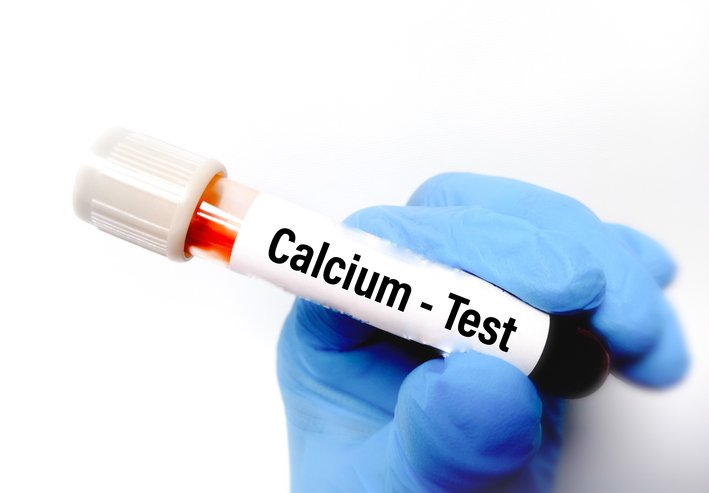How to Destroy Your Metabolism in 15 Easy Steps
Your metabolism is the engine that powers everything your body does—from breathing and digesting food to maintaining energy and regulating hormones. When it’s running efficiently, you feel energetic, maintain a healthy weight, think more clearly, and keep chronic health conditions at bay. But what happens when you sabotage this critical system? This post dives into all the ways you can ruin your metabolism (whether intentionally or not) and highlights the habits and lifestyle factors you should avoid if you want your body to thrive.
This is not advice to ruin your metabolism—it’s a tongue-in-cheek guide that shows you what not to do.
Step 1. Ignore Your Thyroid Health
The thyroid plays a significant role in regulating metabolism. If you're looking to impair its function, ignoring signs of thyroid dysfunction is a sure way to do it. Low thyroid hormone levels, known as hypothyroidism, can slow down your metabolism, making weight loss nearly impossible. Additionally, drinking fluoridated and chlorinated water can disrupt thyroid function. For an extra negative impact, choose non-iodized salt, even though iodine is essential for the production of thyroid hormones.
Step2. Go on a Low-Calorie Diet
If you believe that eating too little is the secret to weight loss, think again. Consuming fewer calories than your body requires can trigger starvation mode, causing your metabolism to slow down in order to conserve energy. Prolonged, low-calorie dieting may result in muscle loss, fatigue, and hormonal imbalances. Additionally, with fewer calories, your body becomes more efficient at storing fat, which can damage your metabolism in the long run. We have known about this phenomenon since Ancel Keys did the Minnesota semi-starvation diet study in 1944.
Step 3. Don’t Sleep Enough (or Sleep at the Wrong Time)
Poor sleep habits can seriously harm your metabolism. If you consistently get less than 7 hours of sleep each night, you risk disrupting important hormones such as cortisol, insulin, and ghrelin, which are crucial for regulating appetite, energy levels, and fat storage. To make matters worse, adopting a nocturnal lifestyle—staying awake at night and sleeping during the day—can confuse your body’s circadian rhythm, leading to an even slower and less efficient metabolism.
Step 4. Stay Dehydrated
Water is vital for numerous metabolic processes, including fat burning. If you want to hinder your metabolism, don't drink enough water. Dehydration slows your body's ability to break down calories and use energy effectively. To make matters worse, replacing water with sugary drinks or alcohol can cause even more harm.
Step 5. Drink Decaf Coffee
While regular coffee can slightly boost your metabolism due to caffeine, decaf coffee does not provide any metabolic benefits. Switching from regular coffee to decaf removes the potential thermogenic (fat-burning) effects associated with caffeine.
Step 6. Skip Calcium
Calcium is essential not only for strong bones but also for proper metabolic function. A deficiency in calcium can hinder your body’s ability to regulate fat metabolism. Research indicates that not getting enough calcium can lead to increased fat storage and weight gain over time. If you want to keep your metabolism sluggish, consider avoiding calcium-rich foods such as dairy products, leafy greens, and fortified foods.
Step 7. Keep Your House Too Warm
If you never expose your body to cooler temperatures, you miss out on the metabolism-boosting effects of thermogenesis. When your body is cold, it burns energy to generate heat. However, if you maintain a warm environment in your home throughout the year, your body has no incentive to increase energy expenditure, which can result in a slower metabolism.
Step 8. Don’t Exercise or Lift Weights
Engaging in physical activity, particularly resistance training, helps build muscle, which in turn burns more calories even when you're at rest. To harm your metabolism, avoid exercise entirely and neglect weightlifting. When you skip physical activity, you gradually lose muscle mass, and with less muscle, your metabolism will slow down.
Step 9. Stress Yourself Out
Chronic stress increases cortisol levels, which promotes fat storage, especially around the belly, and disrupts thyroid function. Over time, this ongoing stress can lead to insulin resistance and other metabolic issues. Additionally, stress often negatively impacts sleep and increases cravings for junk food, further exacerbating its harmful effects on metabolism.
Step 10. Don’t Treat Sleep Apnea
Failing to diagnose or treat sleep apnea can deprive your body of oxygen during the night, which disrupts sleep quality and hormone regulation. This can result in weight gain, fatigue, and a sluggish metabolism. If you snore, wake up feeling tired, or suspect you have sleep apnea, ignoring these symptoms could severely harm your metabolic health.
Step 11. Eat Vegetable Oils and Junk Food
Foods that are high in vegetable oils, such as soybean, canola, and corn oil, along with ultra-processed carbohydrates, can cause rapid spikes in blood sugar and trigger inflammation. This process can slow down your metabolism. Additionally, regularly consuming junk food can damage the liver and increase insulin resistance, both of which are significant contributors to a sluggish metabolism. Finally, eating vegetable oils directly damages the mitochondria, which hinders our ability to generate ATP, the ultimate source of energy. You can read more about how vegetable oils hurt our ability to produce energy here.
Step 12. Don’t Eat Enough Protein
Protein is crucial for maintaining and building muscle, which helps keep your metabolism strong. If you don't consume enough protein, your body may break down muscle for energy, leading to a slower metabolic rate and a condition known as sarcopenia, which I have written more about here. Instead of relying on processed carbs and sugary snacks, focus on getting enough protein to support your metabolic health.
Step 13. Drink Too Much Alcohol
Excessive alcohol consumption disrupts liver function, which is essential for processing nutrients and maintaining metabolic health. It also hinders fat burning, as the body prioritizes metabolizing alcohol over other fuels. Over time, heavy drinking can lead to increased fat storage, inflammation, and a slowed metabolism.
Step 14. Eat Food Sprayed with Pesticides
Pesticides present in non-organic fruits, vegetables, and grains can disrupt the endocrine system, leading to hormone imbalances. These chemicals are associated with thyroid dysfunction, insulin resistance, and reduced metabolic rates.
Step 15. Avoid the Sun
Sun exposure is essential for the production of vitamin D, which is important for energy metabolism. Insufficient sun exposure can lead to vitamin D deficiency, which has been associated with weight gain and metabolic disorders. It’s important to spend some time outdoors to ensure adequate vitamin D levels, but remember to apply sunscreen whenever you go outside to protect your skin.
Conclusion
If you want to harm your metabolism, there are many ways to do it, such as neglecting your thyroid, skimping on sleep, avoiding exercise, and indulging in junk food. However, if your goal is optimal health, you should do the opposite: prioritize good sleep, stay active, and take care of your thyroid. Additionally, try to eat a diet of whole foods devoid of processed carbohydrates and vegetable oils that include animal-based foods with their inherent fats.
Your metabolism is resilient, but chronic neglect can take a toll. Avoid habits that wreck your metabolism, and instead, focus on building a lifestyle that supports your body’s natural energy balance. Remember, a healthy metabolism isn’t just about maintaining a healthy weight; it's also about feeling your best every day.















